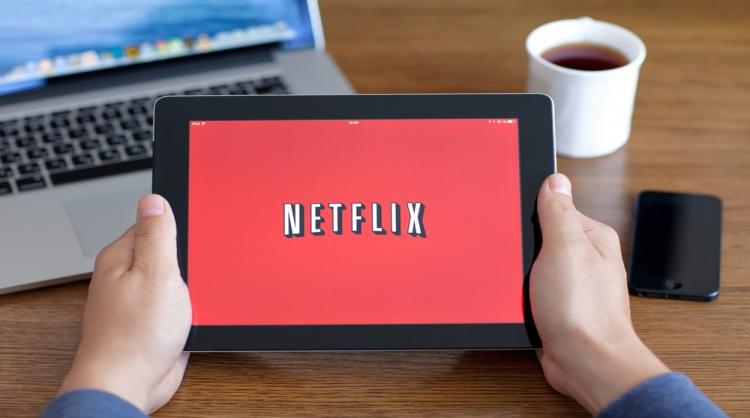NETFLIX Argues All Data Caps Are Illegal
September 16, 2016 | by Andrew Regitsky

Congress will rue the day it included section 706 in the Telecommunications Act of 1996! Not because the idea that all Americans should have access to advanced telecommunications services is bad. After all it is just common sense that advanced services deployment should be a Congressional goal. Rather, the problem with section 706 is the imprecise language that Congress used. That inadequate language is now too often being used to advance self-serving agendas. The latest example is NETFLIX, which in a recent FCC filing has used section 706 to argue that all data caps should be illegal.
Section 706(b) states the following:
The Commission shall, within 30 months after the date of enactment of this Act, and regularly thereafter, initiate a notice of inquiry concerning the availability of advanced telecommunications capability to all Americans (including, in particular, elementary and secondary schools and classrooms) and shall complete the inquiry within 180 days after its initiation. In the inquiry, the Commission shall determine whether advanced telecommunications capability is being deployed to all Americans in a reasonable and timely fashion. If the Commission's determination is negative, it shall take immediate action to accelerate deployment of such capability by removing barriers to infrastructure investment and by promoting competition in the telecommunications market.
Comments regarding the FCC’s latest Inquiry were filed earlier this month as part of Docket 16-245. In its Comments, NETFLIX first made the claim that streaming television shows and movies over the Internet are now a vital part of the American experience.
Consumers increasingly watch television shows and movies over the Internet. Internet television has transformed consumers’ viewing experiences. It allows consumers to watch as much content as they want on-demand, on any device, and in any location where there is an adequate broadband connection. Online video distributors (“OVDs”) offer an increasing array of original television series and movies. Services that once exclusively distributed usergenerated content, such as YouTube, now offer original, scripted television series (e.g. YouTubeRed). Legacy television networks now offer online video services and consumers are even able to watch live sporting events in real time with their Internet connection. And, multichannel video programming distributers (“MVPD”) and packages that replace or compliment traditional cable services (FCC Docket 16-245, Comments of NETFLIX, filed September 6, 2016 at pp. 1-2).
Naturally, if streaming is now vital to the well being of Americans, it falls under the province of section 706:
Data caps (especially low data caps) and usage based pricing (“UBP”) discourage a consumer’s perception of broadband, and may impede the ability of some households to watch Internet television in a manner and amount that they would like. For this reason, the Commission should hold that data caps on fixedline networksand low data caps on mobile networks may unreasonably limit Internet television viewing and are inconsistent with Section 706. (Id., at p. 4).
Now I like “Stranger Things” and “Jessica Jones” as much as the next guy, but I would never argue that streaming those shows is “vital” to my welfare. But that is precisely what NETFLIX is claiming. It is ludicrously asserting that its product offerings are as vital to consumers as access to 911 or access to plain old telephone service (POTS). NETFLIX, however, conveniently ignores the fact that ISPs do not have the capacity to stream unlimited data. Nor does it offer to pay for increasing such capacity. Instead of honestly grappling with these issues, which would have at least allowed NETFLIX to claim that its argument was legitimate, the company puts the entire onus on ISPs to negotiate interconnection agreements with edge providers such as itself to ensure unlimited access to its customers.
The Commission has determined that the exchange of traffic is a key component of the open Internet it seeks to advance. When BIAS (Broadband Internet Access Service) providers represent to their customers that they will be able to reach “all or substantially all Internet endpoints,” they necessarily also promise to make the interconnection arrangements necessary to allow such access. Without interconnection there is no Internet access. Congested interconnection points can impair the proper functioning of advanced telecommunications capability. This results in a poor, and sometimes nonexistent, online video service even when the customer has paid for a high-speed broadband connection. The Commission should continue its policy of watchful vigilance over the ISP interconnection practices and utilize any and all authority under Title II and Section 706 to prevent such practices from harming the deployment of advanced telecommunications capability (Id. at. pp 7-8).
Maybe NETFLIX is on to something. The Commission seems to have it in for ISPs. It has developed privacy rules that treat ISPs much more harshly than edge providers. It also appears poised to introduce strict regulation s for the business data services market which would especially target the large ISPs. If the Commission tries to take it a step further and seriously considers NETFLIX’s proposal, however, that would be a step too far and would almost certainly initiate years of court appeals. The National Cable and Telecommunications Association (NCTA) has it right in its Comments when it argues that the FCC’s annual inquiry into advanced services should cover broadband deployment only and stay away from other controversial issues:
The Section 706 inquiry is not the appropriate context for the Commission to examine factors that go beyond deployment into other areas, such as broadband subscription, performance consistency, and usage allowances. The Commission should not develop an entire methodology to measure and analyze the significance in the Section 706 context of factors that are only tangentially relevant to broadband deployment or availability (FCC Docket 16-245, Comments of the National Cable and Telecommunications Association, filed September 6, 2016 at pp. 5-6).
By Andy Regitsky, CCMI

